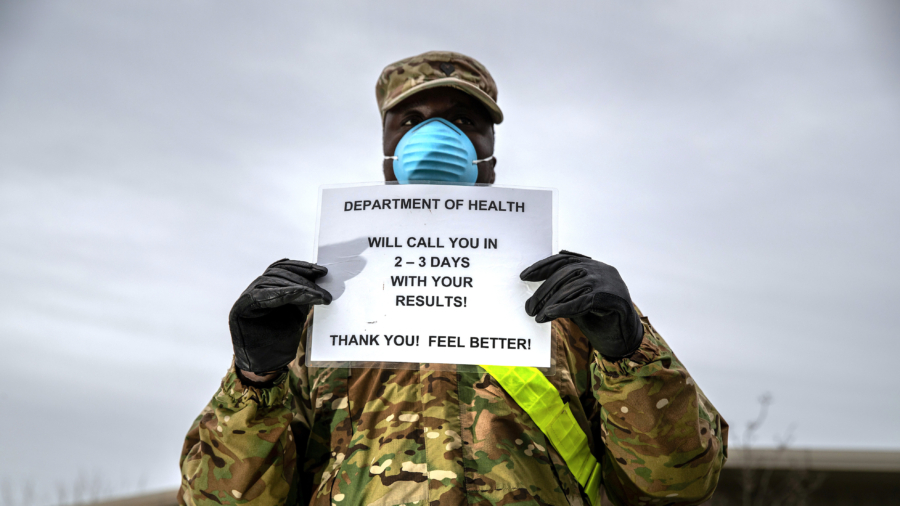Officials with the U.S. Army Medical Department said two soldiers diagnosed with COVID-19 were treated successfully by using an antiviral drug designed in the fight against diseases like Ebola.
The experimental drug called remdesivir, known as an anti-Ebola drug, is being used in the United States and other countries to treat patients infected with the CCP (Chinese Communist Party) virus, a novel coronavirus that emerged from mainland China last year and causes the disease COVID-19.
“Two soldiers diagnosed with coronavirus were given an antiviral drug used to treat the Ebola virus and successfully recovered,” Army Secretary Ryan McCarthy said a news release. “They’re up and walking around. Obviously, that’s not that substantial of a sample size, but it shows that it can work.”
Medical officials noted that two recoveries do not make a very substantial statistic, but saw these signs of improvement in the use of the antiviral drug as hopeful and promising.
“Currently, there are 12 Military Treatment Facilities capable of treating COVID-19 patients under this protocol, and several patients have received or are currently receiving the treatment,” Lori Salvatore, spokeswoman with the Army Medical Research and Development Command, told Military.com.

Gilead Sciences Inc’s experimental drug remdesivir is seen as one of the more promising potential treatments for the CCP virus. It was used in the treatment of the first American patient with the virus, according to a case study published in the New England Journal of Medicine.
The U.S. Army Medical Research and Development Command has signed an arrangement with Gilead to provide the drug to soldiers who have tested positive for COVID-19. On March 23, the company received orphan drug designation from the U.S. Food and Drug Administration (FDA).
Gilead has also “set an ambitious goal” of boosting its supply of remdesivir to more than 500,000 treatment courses by October and more than 1 million treatment courses by the end of this year. Production time has also been accelerated and, as a result, the end-to-end manufacturing timeline has been reduced from approximately one year to around six months, according to a statement by Gilead CEO Daniel O’Day on April 4.
If remdesivir is shown as effective against the virus, which causes the COVID-19 disease, it can be produced for a minimum of $9 a dose, according to a study published on April 9.

Study on Remdesivir
Remdesivir is an antiviral drug that blocks the replication of viruses and helped patients with severe COVID-19, according to a new study.
Seventeen of 30 patients on ventilators were removed from the breathing machines and nearly half of the 53 severely ill patients were discharged from hospitals, according to the study (pdf), which was published in the New England Journal of Medicine. Another seven, or 13 percent, died.
The cohort study tracked 61 patients treated with remdesivir under compassionate use. Eight were left out because seven had no post-treatment data and there was a dosing error with one. The patients were in the United States, Europe, Canada, and Japan.
The promising results were circulating among the medical community, though the authors noted that the study had a number of limitations.
“Interpretation of the results of this study is limited by the small size of the cohort, the relatively short duration of follow-up, potential missing data owing to the nature of the program, the lack of information on eight of the patients initially treated, and the lack of a randomized control group,” they wrote.
“We cannot draw definitive conclusions from these data,” Jonathan Grein, director of Hospital Epidemiology at Cedars-Sinai Medical Center in Los Angeles and the lead author on the study, said in a statement. “But the observations from this group of hospitalized patients who received remdesivir are hopeful.”
Epoch Times reporter Katabella Roberts, Zachary Stieber, and Reuters contributed to this report.

